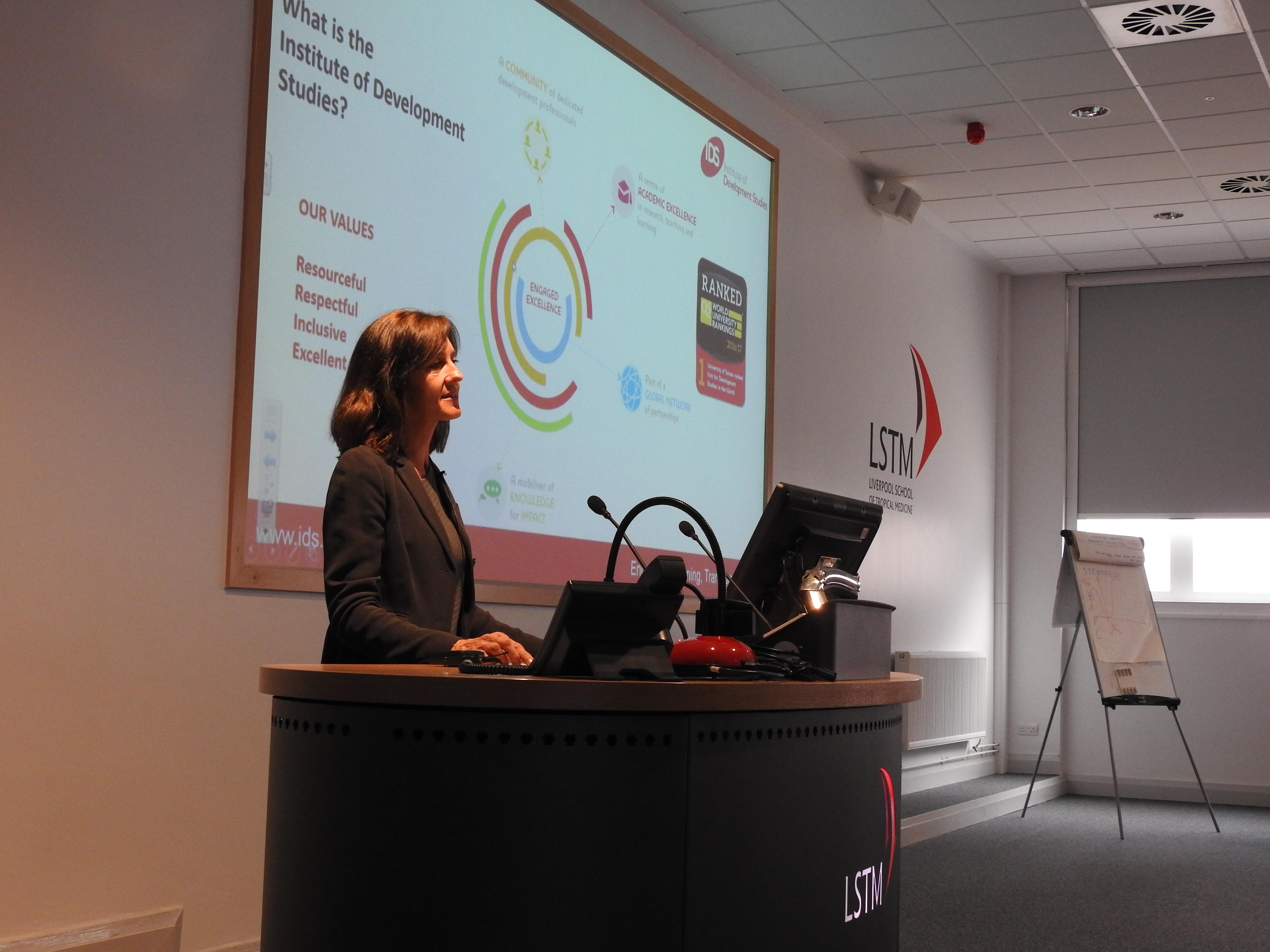
There was a special seminar at LSTM this week as LSTM’s Professor Sally Theobald introduced colleagues from The Institute of Development Studies (IDS), based at the University of Sussex in Brighton. Professor Melissa Leach, Director at IDS and Dr Hayley MacGregor, Co-leader, Health and Nutrition Cluster delivered a presentation entitled: Tackling health-related global challenges: IDS strategy, approaches and directions.
Professor Leach began by explaining what IDS was, a centre of academic excellence in research, teaching and learning comprised of a community of dedicated development professionals. They are part of a global network of partnerships and are a mobiliser of knowledge for impact. She described the mission of IDS and the fact that the work carried out on global health is central to and draws from a broader strategy. Through what Professor Leach described as Engaged Excellence, IDS works across disciplines and in partnerships with multiple institutions, groups and stakeholders around the world to bring about transformations that reduce inequalities, accelerate sustainability and build more inclusive, safer societies.
Looking at Engaged Excellence, Professor Leach used the example of the work of IDS in water and sanitation projects to underline the importance of working across disciplines, using mixed and numerous methods and co-designing, co-producing and co-communicating research with stakeholders. She also gave several examples of how they approach mobilising evidence for impact, including the Ebola Response Anthropology Platform, and talked about the importance of the different partnerships and consortia in which they work, including several with LSTM including K4D, RinGs and COUNTDOWN.
After talking though IDS’ 12 Research and knowledge clusters to demonstrate their intersectorality, Professor Leach gave examples of work within emerging infections and zoonoses to illustrate the importance of working across all available disciplines. She gave details of looking at different diseases in different settings from ecological, social and epidemiological standpoints to understand pockets of infection.
Dr MacGregor worked through further examples to illustrate the approaches of IDS, looking specifically at antimicrobial usage (AMU) and antimicrobial resistance, talking through her work in Myanmar looking at the issues surrounding pig production, and health system responses to chronic lifelong conditions. Dr MacGregor concluded by providing a summary of the IDS Engaged Excellence approach, before opening to the audience for questions.
You can view the seminar here.